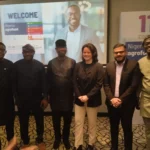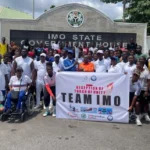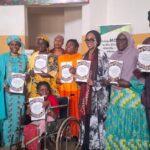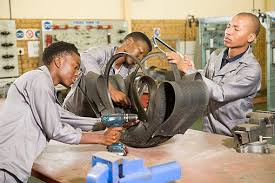By Miracle Imochi
Residents of Bwari Area Council in the Federal Capital Territory (FCT), have commended the Federal Government for introducing skill-based subjects into basic education curriculum.
In interviews with the News Agency of Nigeria (NAN) in Bwari, some of the residents said the new curriculum would encourage self-dependence after school.
They said the newly introduced skill acquisition subjects would help students to gain useful skills that would prepare them for the future.
NAN reports that the Federal Government introduced 15 Skill Acquisition Programmes into Primary and Junior Secondary School Curricula, after approval by the National Council on Education.
The new curricula were designed to build creativity, innovation, and entrepreneurship in students while reducing over-dependence on white-collar jobs.
NAN also reports that the skill programme included; plumbing, tiling and floor work, POP installation, event decoration and management, bakery and confectioneries.
Others are, hair styling, make-up, interior design, GSM repairs, solar installation and maintenance, garment making, basic digital literacy, CCTV, intercom installation and maintenance, agriculture and food processing.
The Principal, Bright Future Academy, Bwari, Mr Suleiman Ibrahim, said the newly introduced basic skilled programme for primary and junior secondary schools was timely and important for Nigeria’s education system.
Ibrahim said that the initiative was a welcomed development, adding that for many years schools had focused mainly on theoretical training.
“For many years, our schools had focused mainly on theory, and many young people graduated without knowing how to apply what they learned.
“This new curriculum is different because it will train the mind and the hands.
“A child who learns a skill early, will not only pass exams but also know how to solve real-life problems.
“This is how we can reduce unemployment in our country. By the time these children finish secondary school, they will have something to fall back on.
“They can choose to start a business and support their families or continue their education with confidence.
“It will also give them a sense of dignity because they know that they are useful to the society,” he said.
Similarly, Mrs Gloria Oche, a Basic Science teacher, who also welcomed the development, said that practical learning makes education more meaningful.
According to her, when children practice with their hands, they remember better and gain confidence.
“For example, when we teach plumbing, they do not just hear about pipes and water flow, they actually see it and touch it. This makes them curious and more eager to learn.
“It also changes the way they view education, instead of just aiming for certificates they begin to see themselves as problem-solvers.
“Even if they do not all become engineers or scientists, the skills they learn here will remain useful to them for life.
“It will prepare them to be independent and responsible adults,” she said.
Mr James Okeke, a father of two, said the new curriculum reform which was long overdue, would provide more opportunities for children and ease the burden of unemployment.
“For years, parents have been worried about what happens after graduation. Many children finish school with good grades but no job.
“This step by the government is a blessing, because it puts skills in the hands of our children early. Even if they do not find white-collar jobs, they can start something for themselves.
“It will also reduce the pressure on families. As a parent, I know that if my children can stand on their own through what they learn in school, it will bring relief,” he said.
Okeke added that learning skilled subjects would make the students to be self employed and also be able to employ others.
Mrs Aisha Mohammed, a mother of four, added that the policy would build a stronger generation of young Nigerians.
“Not every child will go to the university, but every child can have a skill. This curriculum gives them that chance.
“A girl who learns garment-making can start her own shop one day, and a boy who understands plumbing can feed his family with it.
“This is how to fight unemployment and reduce poverty from the roots.
“It will also give our children confidence. They will know that their future is not tied to waiting for government jobs.
“That kind of independence is what we have always prayed for,” she said.
Miss Chiamaka Joseph, a JSS 2 student, said she would go for garment-making, because it has been her chosen vocation during holidays.
Another student, Musa Usman, said digital literacy would change the way he would be using the computers.
According to him, digital training would expand his horizon beyond playing games to coding and multimedia presentations. (NAN)(www.nannews.ng)
Edited by Rotimi Ijikanmi












